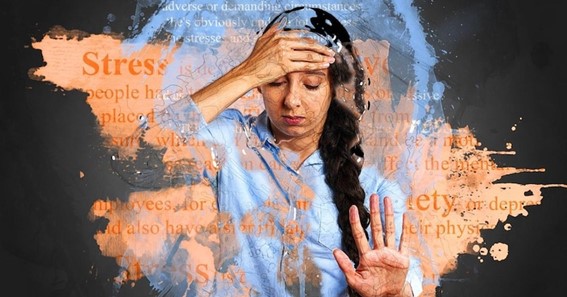Nowadays, a lot of people are stressed. Manifestations of stress can range from anxiety to depression and poor sleep. In this article, we will talk about the effects of stress on the body and ways to neutralize it.
We’ll discuss the reduction of life or the addictions as the most dangerous consequences of stress. If you noticed that stress caused substance abuse, better google professional free rehabs near me.
Does stress really shorten life?
Finnish scientists have been doing the research for 20 years and it turned out that constant stress in 30-year-old men and women reduces their life expectancy by 2.4 and 2.3 years, respectively. The numbers don’t look that big. But the impact of stress on health is also diseases and bad habits associated with nervous tension and reducing the quality of life.
Cardiologists distinguish different types of behavior under stress. For example, type A is resistance to stress “to the last”, after which breakdowns often occur. This is how people who are focused on success and competition behave. Often this leads to the depletion of the body’s resources and, as a result, strokes and heart attacks. In addition to type A, there is an avoidance reaction: people “go headlong” into work, abuse alcohol or drugs, “jam” experiences. All this exacerbates the negative impact of stress on well-being in the long term.
What happens in the body during stress?
The alarm signal originates in the cerebral cortex and is transmitted to the hypothalamus. There, a hormone is synthesized that affects the pituitary gland. It stimulates the adrenal glands, which release adrenaline and cortisol into the bloodstream. Because of the adrenaline, the heart beats faster, the pressure rises, the energy expenditure increases. Due to cortisol, there is more sugar in the blood, the brain uses glucose more actively, and the functioning of the digestive and reproductive systems is inhibited, as they interfere with repulsing the threat. When the danger has passed, hormone levels return to normal. Digestion and other processes begin to work normally again. In general, such a small “shake” is even useful. It makes us more resilient and ready for serious dangers. Everyone knows this “good” stress: when you play sports, participate in competitions, perform in public, experiences are inevitable, but they quickly end and you feel great again.
But when stress lasts for a long time, the body is constantly in a state of tension. The adrenal glands “get tired”, stop producing enough cortisol. Many of us are familiar with the symptoms of this condition. These are dizziness, constant fatigue, cravings for salty and sweet, sleep disturbance, decreased sexual desire, mood swings, autoimmune conditions. This all can lead to addiction and looking for free rehab centers.
Click here – Video COB lights tips and tricks for home shooting
What diseases does stress lead to?
A number of diseases are associated with stress: diabetes, anxiety, depression, high blood pressure, heart and vascular disease, and much more.
The most common cause of stress is cardiovascular disease. If the heart rate and blood pressure are constantly elevated, there is a risk of developing coronary heart disease, heart attacks and strokes.
Many are familiar with discomfort in the stomach against the background of nervous tension. It is classified as a functional disorder, from which, according to various estimates, from 35% to 70% of people suffer. The digestive system reacts to stress with cramps, indigestion, diarrhea, or constipation. If stresses are regular, then the process of digestion of food is disturbed systematically, which can provoke and accelerate the development of gastritis, ulcers and other diseases. In addition, anxiety often causes us to skip meals or overeat, eat more sweet, fatty and starchy foods. A bad diet is a sure way to stomach and intestinal problems.
Of course, the impact of stress on the human body provokes mental disorders. These are panic attacks, depression, neuroses, addictions. Often they require long-term treatment under medical supervision or at a free drugs rehabilitation center.
How do you know when it’s time to take action?
Each of us expresses stress differently. So, many consider anxiety and anxiety to be the main manifestation of stress.
Doctors, on the other hand, highlight specific signals that indicate the negative impact of stress on the body:
- disturbance of appetite and sleep,
- headache,
- cardiopalmus,
- digestive problems, diarrhea or constipation,
- muscle tension and weakness,
- apathy and fatigue
- anger and irritability
- forgetfulness and poor concentration
- low productivity,
- abuse of alcohol, tobacco (in this case, you should look for a free alcohol rehab),
- fussiness,
- decreased immunity and exacerbation of chronic diseases.
Ways to deal with stress and its impact on a person
There are a number of methods for dealing with stress. Most of them include the following steps:
- find the cause of stress – events or circumstances that make you nervous, make a plan to eliminate the causes of stress or work out the issue with a psychologist,
- Establish a proper sleep regimen (7-8 hours a day),
- include regular physical activity in your daily routine,
- practice relaxation skills – this can be creativity, meditation, yoga, walking, depending on what helps you personally to be distracted,
- relax and be outdoors more often, it is best to include these two items in your daily routine and take time for them,
- share your problems and experiences with loved ones.
As you can see, alcohol and tobacco were not included in this list, as well as sedatives because the consequences of substance abuse are worse, according to specialists from paid and free drug rehab centers. They should be taken only after consulting a doctor. Moreover, the prescription of such medications often indicates not so much stress as the presence of more serious mental problems.
Click here – Can Solar Panels Be Recycled?
To Know Some Great Stuff Do Visit heathhopro
To Know Some Great Stuff Do Visit ofadvantages
To Know Some Great Stuff Do Visit prozgo





